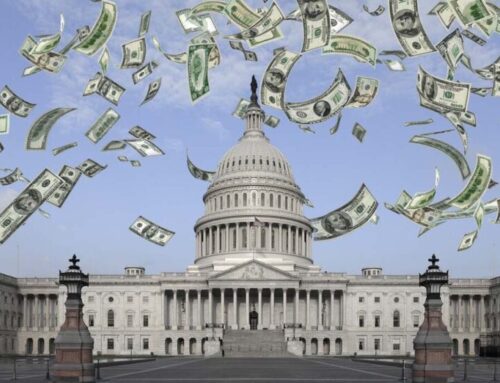Despite initial plans to move ahead with debate and of a transportation bill, political reality set in late yesterday and today for House Speaker John Boehner (R-OH) and other leaders who hoped to pass a bill before the week long President's Day break. This reality is directly a result of House leadership introducing a completely unacceptable piece of legislation, which managed to unify forces across the political spectrum in opposition.
One of the major problems with the bill, on which TCS has helped lead the charge, is that it uses speculative funding sources with no connection to transportation to increase the size of the nation's transportation program. Since the expected revenue from energy development is unlikely to materialize in the time-frame the bill envisions, taxpayers will be left with bigger deficits and an even bigger debt as a result. In addition, the energy provisions and pension reform that purport to pay for this bill have no connection to transportation and therefore tear down the “user-pays” principle upon which our transportation system has been based for decades. As a result of the financing problems with this bill, TCS has urged lawmakers to oppose H.R. 7.
Here is where things stand at the moment on this legislation:
- Late yesterday, House leadership announced it would be breaking up the overall bill and debating it as three separate components that would then be cobbled back together and sent to the Senate as a complete bill. This maneuver recognized that the entire bill was unlikely to pass, and gives leadership an opportunity to pick off reluctant members who may support some portions but would oppose the overall package.
-
The three bill components:
- the actual transportation policy in the bill
- a pension reform piece that was the biggest part of the pay-for on this bill
- four energy-related provisions that would allegedly help pay for the bill as a result of increased royalties
-
Earlier today, the road to a transportation bill became even more difficult.
- Speaker Boehner, who was already unsure of whether he would have enough votes, essentially confirmed that he did not by pushing back consideration of the transportation portion of the bill by at least two weeks.
- It also became more clear that the $40 billion in savings from the pension reform piece would be used in the payroll tax reduction bill, making it unavailable for the House transportation bill and creating an enormous hole that must be filled before this bill can pass
- At present, the House is debating the energy provisions contained in the bill. This is the only portion of the bill that is likely to see the light of day before the week-long break.
Due in part to pressure over how this bill is paid for, House leadership has finally recognized the difficult road to passage. We are deeply bothered, however, by the cynical ploy to break the bill into several parts to shepherd it through passage. Nobody is hiding the fact that once each of the pieces have passed, they will immediately be cobbled back together into one large bill again. We encourage members of Congress to approach these separate pieces as though they remain part of the larger package. There are members who support the energy provisions, for example, but oppose using the royalties for transportation; or support pension reform, but would like to see those savings used to shore up the pension system. But it would be disingenuous for members to vote freely on these pieces without considering them as part of one large package. It would be willful ignorance on the part of any member to pretend any differently.
Leadership knows they may pick off some members with this approach. But we hope there are enough fiscal leaders in the House with the guts to oppose individual pieces of this package they might otherwise support in recognition that in the end this is the more fiscally prudent approach.











Get Social